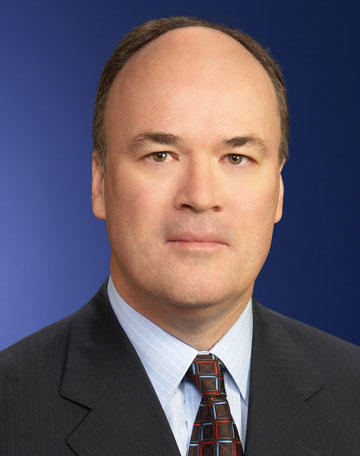General counsel in Canadian organizations should think about taking on a greater role in the compliance function to help combat fraud before it takes place, says a forensics expert with KPMG.

For years, John Williams, a partner with KPMG LLP based in Calgary has worked with audit committees and boards as well as in-house counsel. “More often than not when we get involved with the GC it’s on a reactive basis because there’s been a problem,” says Williams.
Often, it has been a situation when a senor level executive has engaged in some inappropriate behavior such as a form of fraud or other financial misconduct it often involves a call to a forensic accountant. In its recent report, "
Who is the typical fraudster?" KPMG looks at patterns in fraud and provides insight based on its analysis of 348 actual investigations, including many cases of financial misreporting.
The findings show that globally, board members at divisional, subsidiary, and corporate levels commit nearly one fifth of fraud (18 per cent), and that senior management still accounts for the largest proportion of frauds perpetrated (35 per cent). The profile of a typical fraudster is: male 35 to 55 years of age in a management position with a fairly lengthy tenure and ideally situated to exploit any weaknesses.
“The interesting thing that comes out of the survey is that that the primary reason for most frauds occurring continues to be the exploitation of weaknesses in internal controls,” says Williams, noting it is more common to see it happen in private companies. “I’ve seen situations where an employee who has worked for a company for 30 years has stolen millions of dollars from them.”
In 2011, some 56 per cent of frauds had exhibited one or more prior red flags but only 10 per cent had been acted on. That means company and public sector employees are failing to respond to warning signs.
Williams says he can see Canadian in-house counsel following on a trend that’s been developing in the United States in which general counsel are working more closely with internal audit functions, compliance executives, and monitoring officers.
Large corporations in the U.S. are setting up compliance officers in cities where they have major subsidiaries. “My sense is that for the most part the people who are now fulfilling those roles are lawyers,” he says.
Those lawyers are mandated to ensure that employees are complying with corporate initiatives such as whistleblowing mechanisms, anti-bribery and anti-corruption policies, as well as concerns over financial reporting or various risk management issues.
“What I think is emerging out of the U.S. is the GC office is taking more of a pro-active role to ensure there are proper governance structures put in place to jointly address the culture of the organization, to make sure people understand how they can report their concerns and make sure the mechanisms are in place to give assurance to anybody who wants to report a concern that it’s a retribution-free environment,” says Williams. “Of course there’s always a caveat on that that if someone does it with a malicious intent all bets are off.”
From his vantage point, Williams says the role of GC has expanded significantly since 2004. “They’re becoming more critical in terms of ensuring that corporations are setting the proper tone and satisfying their statutory obligations in terms of compliance.”
In fact, he says general counsel hold a unique position in an organization. “More often than not, general counsel can stay above the fray. The ones I know don’t let emotion creep into their decision making and are generally effective in steering the corporation down the right path, making sure they don’t stray ethically with difficult situations, and holding everyone else to a higher standard.”
In large organizations the roles of general counsel and compliance may need to stay separate says John Boscariol, leader with McCarthy Tétrault LLP’s international trade and investment law group. “I think the trend we’re seeing is there is a focus on appointing a chief compliance officer that is separate from your general counsel because of perceived conflicts.”
Williams says there needs to be a healthy culture of openness in an organization, and making sure people in finance functions are properly supervised and monitored.
“It’s tough for in-house counsel to be in charge of the internal controls but where they can be great is in the role of making sure the organization is in full control of all the compliance issues and statutes and working on a culture of compliance. From there, once people get it into the DNA of the organization, it doesn’t mean things won’t happen but it really minimizes a catastrophic loss.”

 For years, John Williams, a partner with KPMG LLP based in Calgary has worked with audit committees and boards as well as in-house counsel. “More often than not when we get involved with the GC it’s on a reactive basis because there’s been a problem,” says Williams.
For years, John Williams, a partner with KPMG LLP based in Calgary has worked with audit committees and boards as well as in-house counsel. “More often than not when we get involved with the GC it’s on a reactive basis because there’s been a problem,” says Williams.